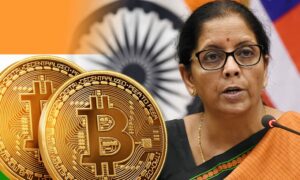During a session at the India Today Conclave 2024, Finance Minister Nirmala Sitharaman reiterated the Indian government’s firm stance on cryptocurrency assets. She emphasized that these assets cannot be regarded as currencies, stating, “The government’s position has always been clear that assets created under the umbrella of crypto can serve various purposes, including trading and profit-making.”
In response to queries about the government’s perspective on cryptocurrencies amid recent market surges, Sitharaman emphasized that there has been no change in regulation. She affirmed, “We haven’t regulated them in the past, and we aren’t regulating them now. However, they cannot be classified as currencies, and that remains the stance of the Government of India.”
Sitharaman underscored the necessity of regulation, explaining, “Currencies are issued by the government or the central bank and are backed by fiat. Cryptocurrencies remain unregulated in India.” She stressed the importance of addressing cryptocurrency regulation globally to mitigate the risks of illicit activities such as money laundering and terrorism financing.
Beyond cryptocurrency, Sitharaman delved into various economic aspects. She addressed concerns regarding declining consumer spending and household savings, outlining government initiatives to enhance small savings through improved interest rates. Additionally, she highlighted the growing trend of Indian retail investors directly participating in the stock market, indicating a shift in investment behavior.
Regarding recent reductions in LPG and fuel prices, Sitharaman clarified that these measures aim to benefit the public and are not politically driven, refuting opposition allegations. She also addressed speculations surrounding the connection between investigative agency raids and electoral bonds, cautioning against making unfounded assumptions.
In summary, Sitharaman’s statements at the India Today Conclave shed light on the Indian government’s steadfast position on cryptocurrency assets, emphasizing the need for global regulation. She also provided insights into various economic matters, including efforts to bolster small savings, changes in investment patterns, and measures aimed at benefiting the public.







